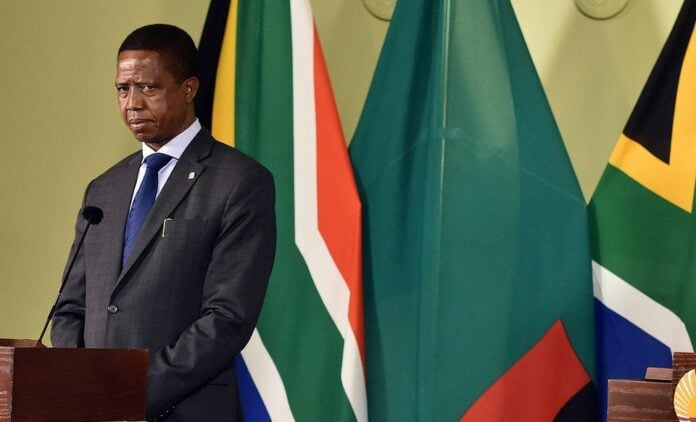Opinion: Lungu Burial Saga Exposes Zambia’s Legal Vacuum
By Oliver Jangulo
The Pretoria High Court’s handling of the Edgar Lungu dispute has stripped bare an uncomfortable truth: Zambia has no law that regulates the burial of former presidents. We are witnessing not simply a family-versus-state quarrel, but a constitutional void that risks repeating itself with every presidential death.
Advocate Tembeka Ngcukaitobi’s argument — that “you cannot reinstate rights on a corpse” — spoke directly to the limits of the Benefits of Former Presidents Act. That Act governs pensions and allowances, not funerals. Edgar Lungu lost his benefits the moment he returned to politics in 2023. On this, there is little debate.
The government has shifted its weight to presidential immunity, claiming it provides the basis for state control over funeral arrangements. Yet immunity is no safe harbour: it can be stripped by Parliament, and many in Lusaka believed Lungu was already on the verge of losing it. To rest the government’s claim on immunity alone is therefore a fragile strategy.
The Pretoria court adds another twist: Zambian statutes do not apply in South Africa. Judges there are instead guided by international principles of dignity and comity. That is why earlier they sided with the government’s request for repatriation, but yesterday’s session showed just how uncertain that reasoning remains.
Other countries have faced similar dilemmas, but some have handled them better. Tanzania has a clear statute that respects both state ceremony and family wishes. Zimbabwe has no such law, and the chaos around Robert Mugabe’s burial in 2019 was the result. South Africa, in Mandela’s case, struck a balance by granting the family the final burial choice while still giving the nation its full state funeral.
Zambia, by contrast, continues to stumble forward without codification. Kenneth Kaunda’s family backed away from litigation in 2021; otherwise, the courts might have faced the same quagmire we now see with Lungu.
And that is the lesson. Whichever way the Pretoria bench rules, one side will feel robbed the government of its protocol, or the family of its rights as kin. A judgment may settle the immediate matter but not the underlying problem. The best solution lies in compromise and reform. Out-of-court dialogue could both preserve Embassy Park’s dignity and acknowledge the family’s claim. And in the longer term, Parliament must legislate clear rules, so no future president’s funeral becomes a courtroom drama.
This saga is not only about Edgar Lungu. It is about how Zambia chooses to honour the presidency itself with clarity, respect, and law, not uncertainty and strife.



It actually exposes HH’s hate and legal vacuum in his administration.